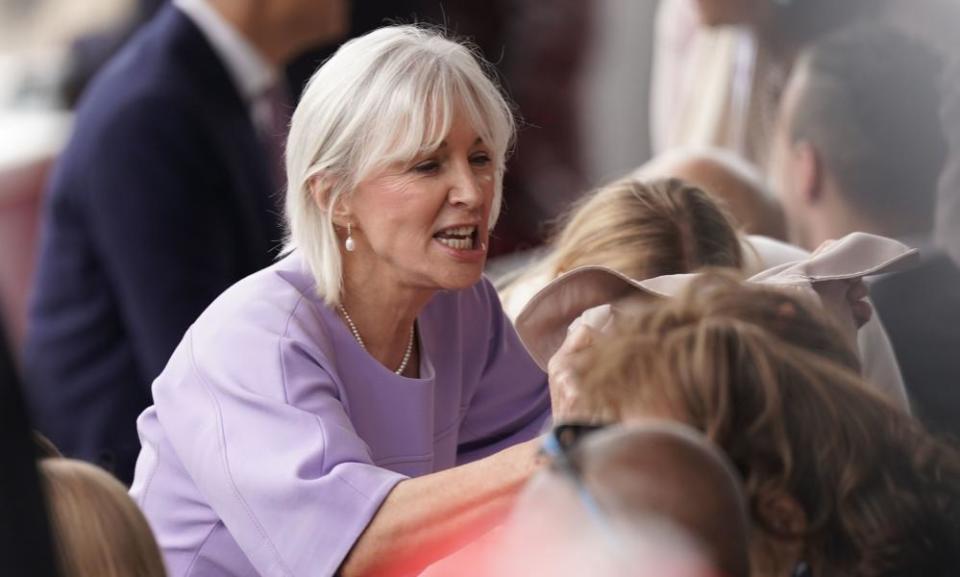Nadine Dorries to urge British sports to follow Fina in transgender policies

The culture secretary, Nadine Dorries, says she will make it “crystal clear” to British sporting bodies that competitive women’s sport must be reserved for people born of the female sex when she meets them on Tuesday to discuss their transgender policies.
Dorries will urge organisations representing football, cricket, rugby, tennis, athletics and other sports to follow the lead of Fina, the governing body of swimming, by barring from female events trans women who have “gone through male puberty”.
Related: Decision time: why sport is struggling to deal with transgender row | Sean Ingle
Writing in the Mail on Sunday, Dorries said: “I have the greatest compassion for anyone who finds themselves living in a body they don’t recognise. But we can’t pretend that sex doesn’t matter. Sex has biological consequences. If you’re born a male, and you go through puberty as a male, your body develops natural physical advantages over a woman’s. That makes you stronger and faster.
“I’m setting a very clear line on this: competitive women’s sport must be reserved for people born of the female sex. Not someone who was born male, took puberty blockers or has suppressed testosterone, but unequivocally and unarguably someone who was born female. I want all of our sporting governing bodies to follow that policy.”
As things stand, most international sports still allow trans women to compete in the female category if they reduce their testosterone for 12 months. Similar policies are also adopted by most British sports at national level. However at the grassroots it is not uncommon for trans women to be able to self-ID into female events.
In the past week, however, there has been a seismic shift by some international governing bodies. Fina decided to change its policy after its scientific panel found that trans women had a “relative performance advantage over biological females, even after medication to reduce testosterone” – a stance soon followed by the International Rugby League. World Athletics has also hinted it may follow suit.
Such decisions have been welcomed by Dorries, who wrote: “Finally, reason seems to be returning to the world of sport – and when I gather our own sporting governing bodies this week, I’ll be making it crystal clear that I expect them to follow suit.
“It shouldn’t need to be said, but in the vast majority of sports, asking women and teenage girls to compete against someone born male is inherently unfair – particularly when we know there are existing challenges and barriers that stop women and girls getting involved in sport.”
Download the Guardian app from the iOS App Store on iPhones or the Google Play store on Android phones by searching for 'The Guardian'.
If you already have the Guardian app, make sure you’re on the most recent version.
In the Guardian app, tap the yellow button at the bottom right, then go to Settings (the gear icon), then Notifications.
Turn on sport notifications.
Dorries will emphasise that message in the meeting on Tuesday, when transgender policies at elite and grassroots level will be discussed. However it is understood the government will ultimately leave it up to individual sports to decide where the line should be drawn.
That could yet prove a recipe for stasis. Last year the Sports Councils Equality Group, set up by the five councils that fund grassroots sport in the UK, said there was no magic solution to satisfy all sides of the debate and that sports had to choose between safety and fairness on one side and trans inclusion on the other. However there has been little change since.
Meanwhile any significant changes are likely to be opposed by the LGBTQ+ body Stonewall. It has previously warned that “inflammatory rhetoric surrounding the issue only serves to perpetuate an atmosphere where trans people feel unwelcome to play community sport with their friends or go to the gym”.

 Yahoo Sport
Yahoo Sport 




































